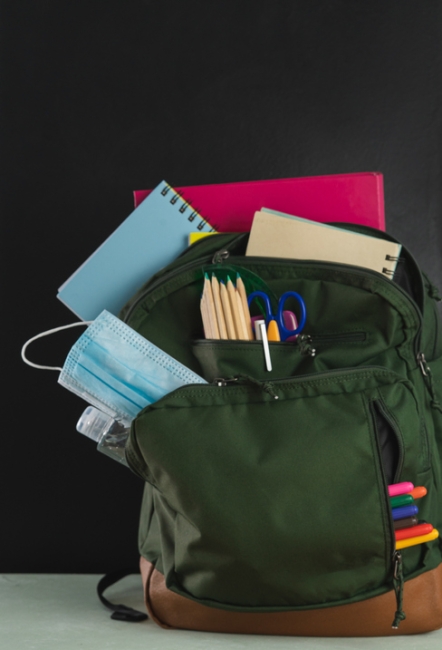You have /5 articles left.
Sign up for a free account or log in.

Maria Catellanos/Istock via Getty Images
I’m ready to be back. On campus. In a classroom. With students.
I know that goes against the majority thinking, but I’m not trying to convince anyone to join me. We each have to decide for ourselves. I’d just like to offer some thoughts on getting back to class.
I miss the early-morning walk in from the parking lot before students start arriving on campus.
I miss the cup of coffee with a couple other early-bird colleagues before our 8 o’clock classes start.
I miss reading nonverbal communication from students on whether what I’m telling them makes sense or not.
I miss getting to know the clerical staff more by working with them.
I miss talking in person with colleagues about subject-matter topics.
I miss the occasional student stopping by with a question or a former student dropping in to ask for a recommendation.
I miss hearing a student say, “Oh, OK. Now I know what you mean.”
My community college is like most others of its type, a commuter college -- no residence halls on campus. Our students come to us for the communal experience that is different from the family community and the workplace community and the church community. They come to campus and class to meet and see and do and then go home.
Or not.
A growing number are food insecure and housing insecure, so our campus offers them a place to be physically nourished and rested, as well as intellectually fed. A Wi-Fi connection. A place to charge up a cellphone and a laptop. A clean restroom. And a quiet place to just be until campus closes for the night.
The campus environment isn’t just a work environment for them. Being back on campus isn’t about some romantic ideal of “the college experience” they imagine it to be. It isn’t about being a part of the stereotypical college social life for them. It is literally existential for them. I wonder how they are doing …
Our international students are also affected by campus closures. Yet in the face of the restrictions on international students -- they must attend a majority of in-person classes or lose their visa status -- I haven’t witnessed a strong voice from the faculty offering to step up to teach those required in-person classes so as to help these students. If actions speak louder than words, what has this inaction said to those students?
More Than Personal Comfort
Kenopsia is the eerie, forlorn atmosphere of a place that is usually bustling with people but is now abandoned and quiet. I usually feel this as finals week progresses and in between semesters when classes are not in session. Since I’m at home, I close my eyes and see those places without people in them.
I taught online classes before the campus closure. I think I do all right with them. I think my students think I do all right with them. Maybe not the best, but not the worst, either. I know that many colleagues have built amazing online courses that greatly outclass my remote efforts. So I know that online classes can work very well. (My father and sister both earned degrees from “universities without walls” back in the day and became successful professionals.) But many of my online students take the class because the in-person version was full and unavailable yet they still need the credits. Not the best in their minds, but they have to take what they can get. They would rather be in person.
Many of my students are less prepared for college-level thinking and academic work than they should be to do well in the class when they come through the door or LMS portal. They already know they need help. They also know that the best way for them to get that help is in person. My older students feel that way especially. Talking with another person is its own experience -- one that is not like a text message or email even if the words are the same. That audible vocal inflection makes a difference. And we all know how easily misunderstandings occur in text-only communication, even with people we know very well. How much easier is such miscommunication among mere acquaintances?
It’s about more than my personal comfort level or safety. Teaching has never been about personal comfort and safety. For faculty members and students, it’s always been about getting outside of comfort zones and safe positions. Confronting ignorance is unsettling, especially my own. It means I might have to give up a way of thinking -- about which I became complacent -- that’s not the best way to think or act. But if I never challenge it, I don’t move forward the best way.
My college’s administration informed us in June that we would be open for in-person classes and other modes for the fall. As the situation unfolded in late June, July and early August, we adjusted to remain online-only for all classes for the first six weeks of the semester and start in-person classes the first of October (a buffer to see how the situation changes later in August and September). And the reopening will have loads of safety conditions: masks, temperature screening, hand washing, social distancing, limited room occupancy, alternate attendance, room sanitization and the like. As we get closer to that reopening date, I anticipate another adjustment or two, including possibly remaining online-only. So I’ll wear a mask and use hand sanitizer and socially distance myself from others, and so on. I like my job and want to keep it.
I get the physical safety concerns regarding virus transmission, infection and recovery. I’m 64. I know I’m in the lower end of the higher-risk group for contracting the virus. I’ve also been around the block a few times. It’s not like I don’t know something about risk management. I hold the handrail when I take the stairs, but I still walk up and down stairs. (I need the exercise.) I still mow my yard in the intense summer heat in Houston (more of that exercise), but I minimize the time outside, drink fluids, choose the cooler times of day. I get into my car and drive my 15-mile commute to campus five days a week on a stretch of Houston freeway one year recognized as the fifth most dangerous length of freeway in America. Sure, I’m a little nervous about that: there are thousands of cars, all going 70-plus miles per hour down the road. I’d be stupid to be cavalier about it. But I drive defensively and still make the drive. The work is worth the risk.
But more important, I want my students to know that, not only is a college education worth it, it’s worth the risk during a pandemic. That it’s worth it under more adverse circumstances than we usually face, not just when it’s more convenient. And that their college education is worth it to me.








